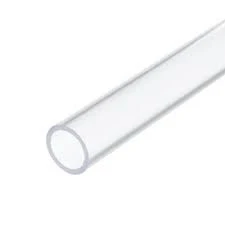Dec . 14, 2024 19:33 Back to list
Durable and Versatile PVC Panel Solutions for Modern Design Needs
The Versatility of PVC Panels A Comprehensive Overview
In today's construction and interior design landscape, finding materials that combine durability, aesthetics, and cost-effectiveness often feels like searching for a needle in a haystack. However, PVC panels have emerged as a popular choice, offering a versatile solution for various applications. Whether for residential or commercial use, these panels bring together functionality and style.
What Are PVC Panels?
PVC, or polyvinyl chloride, is a synthetic plastic polymer widely used in numerous applications due to its durability and resistance to environmental factors. PVC panels, made from this compound, are lightweight yet sturdy, making them easy to install and handle. They are available in a variety of designs, colors, and textures, making them suitable for virtually any setting—be it walls, ceilings, or even flooring.
Benefits of PVC Panels
1. Durability One of the most significant advantages of PVC panels is their remarkable durability. Unlike traditional materials such as wood or drywall, PVC panels are resistant to moisture, mold, and pests. This quality makes them an excellent choice for high-humidity areas like bathrooms and kitchens.
2. Low Maintenance Maintaining PVC panels is a breeze. They do not require painting, sealing, or special treatments, and can be easily cleaned with a damp cloth and mild detergent. This ease of maintenance not only saves time and effort but also contributes to their long-lasting appeal.
3. Cost-Effectiveness Compared to other materials, PVC panels are often more affordable. Their longevity and low maintenance expenses further enhance their cost-effectiveness, making them a popular choice for budget-conscious homeowners and businesses.
4. Aesthetic Appeal PVC panels are available in a wide range of designs, colors, and textures, from sleek modern finishes to classic styles. This versatility allows homeowners and designers to create unique spaces that reflect personal style without compromising on functionality.
pvc panel

5. Easy Installation The lightweight nature of PVC panels simplifies the installation process. They can be easily cut to size, making them suitable for DIY projects. Many products come with interlocking designs or adhesive backing, further facilitating a straightforward installation process.
Applications of PVC Panels
PVC panels can be utilized in various settings, including
- Residential Spaces Homeowners can use PVC panels in living rooms, kitchens, bathrooms, and basements to enhance the aesthetics and functionality of their spaces. They can be used as wall coverings or ceiling panels to provide a modern look while protecting against moisture and damage.
- Commercial Buildings Businesses can benefit from PVC panels in areas such as offices, reception areas, and retail spaces. Their professional appearance combined with durability makes them ideal for high-traffic environments where aesthetics and functionality are essential.
- Industrial Uses The resistant properties of PVC panels make them suitable for industrial environments where hygiene and cleanliness are crucial. They are often employed in food processing facilities, laboratories, and hospitals due to their easy-to-clean surfaces.
Conclusion
PVC panels represent a perfect blend of practicality, design, and affordability. Their ability to resist water damage, pests, and wear and tear makes them a reliable choice for various applications. With a plethora of styles and colors, homeowners and designers can create beautiful spaces that stand the test of time. As the demand for innovative building materials continues to grow, PVC panels are likely to maintain their popularity, emerging as a go-to solution for modern interior and exterior designs. Whether you're renovating your home or planning a new commercial project, considering PVC panels may very well lead to a successful, stylish, and sustainable outcome.
-
PP U-channel: Chemical-Resistant, Lightweight & Durable
NewsAug.10,2025
-
Transparent PVC Pipe: Clear Flexible Tubing for Fluids
NewsAug.09,2025
-
Durable PP Rigid Sheet: Versatile & High-Quality Plastic Panels
NewsAug.08,2025
-
Premium Glossy PP Rigid Sheet – Durable & Versatile
NewsAug.07,2025
-
High-Quality HDPE Sheet | Durable Plastic Panels
NewsAug.06,2025
-
High-Precision PVC Rigid Sheets for Vacuum Forming | AI-Optimized
NewsAug.05,2025

